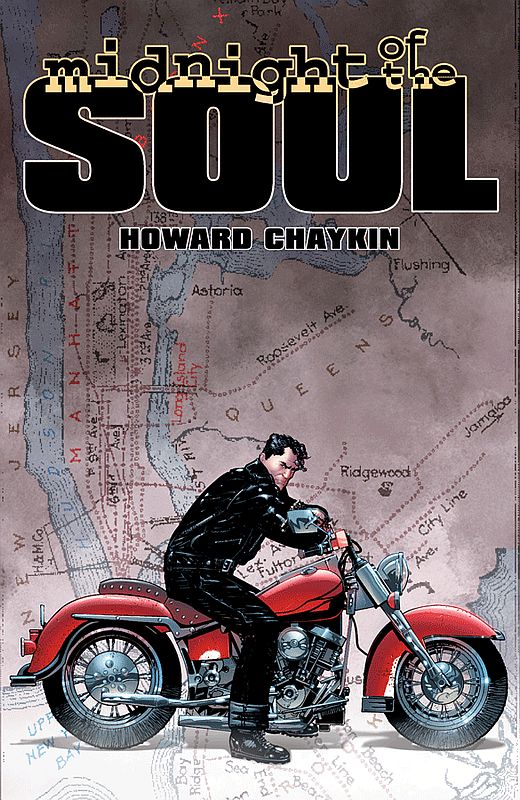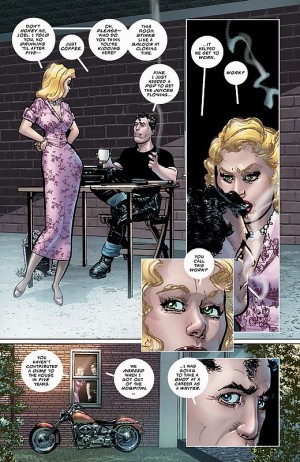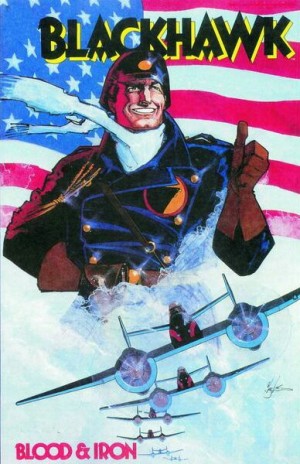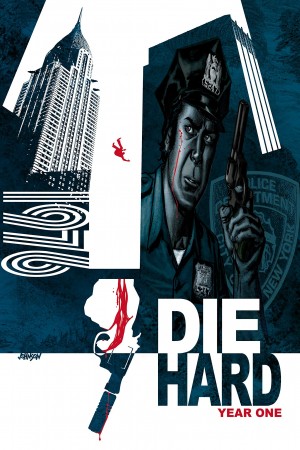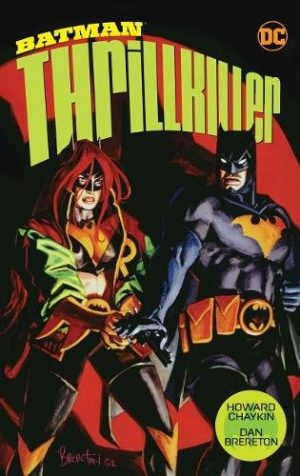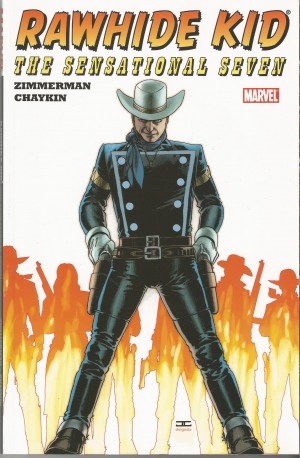Review by François Peneaud
Howard Chaykin, while recognized for his dystopian science-fiction stories, such as American Flagg! or Twilight, is also known for being fascinated by the decades around his birth and youth (he was born in 1950): some of his work on The Shadow is set in the 1940s, as well as his Blackhawk reboot; an Avengers graphic novel is set in the 1950s, as is the recent and excellent Satellite Sam series with writer Matt Fraction. With Midnight of the Soul, Chaykin is back in 1950 with a story so amoral it’s a surprise it was published by an American company.
Joel Breakstone is a military vet who’s witnessed first-hand the horrors of the Nazi death camps, never managing to leave it behind him. Half a decade after his return from Europe, his life feels like a failure: his science-fiction writing career never took off, he lives in a house owned by his wife’s brother, and his wife Patricia has seemingly given up on him. The only thing he looks forward to is his next bottle of alcohol. When by chance he finds photos of his wife having sex with other men, Joel decides to go and look for her-probably not to ask for divorce. Things become more complicated as at the same time, Patricia’s musician lover is shot dead in front of her. Patricia flees the scene of the crime and the musician’s crime boss patron decides she must be the one who’s shot him.
In the best tradition of noir literature, there are almost no likeable characters, which doesn’t prevent them from being interesting. Chaykin manages to show the bigotry of the times (as Patricia’s dead lover was black and the two thugs employed by the crime boss to hunt Patricia are gay) without shirking from using explicit slurs, all the while putting them in a larger context, that of Joel’s crushing memories of Buchenwald. Joel is the most flawed character of all, which is fitting for the protagonist. His memories of a shooting in the death camp that led to the loss of an army buddy and a wound for him are soon shown as being untrustworthy, a clever way for Chaykin to show how damaged Joel is. Another aspect of Joel’s hurt psyche is hinted through the kind of SF he writes: alternate worlds where the Nazi have won are bit too avant-garde for 1950, but definitely illuminate Joel’s inner turmoil.
As good as Chaykin the writer is, it’s Chaykin the artist who first grabs the reader’s attention and keeps it. His line is as tight as his layouts, his cast have lived-in faces, while Joel looks the same as most of Chaykin’s main characters, a trait some might find annoying. His use of square inserts of faces as a zoom effect works so well it’s a wonder more artists aren’t incorporating it in their toolbox, and colorist Jesus Aburtov does a wonderful of creating a palette that makes this world look both real and enhanced–just like Chaykin’s art itself. A word on Chaykin’s long-time collaborator, letterer Ken Bruzenak: he’s still without equal regarding the integration of sound effects, billboards and various textual information, whether to the foreground or as background noise.
Midnight of the Soul is full of nasty people being harsh on each other. It doesn’t make for an easy read, but Howard Chaykin is not the kind of creator who tries to make it easy on the readers, as his next project clearly indicates.
